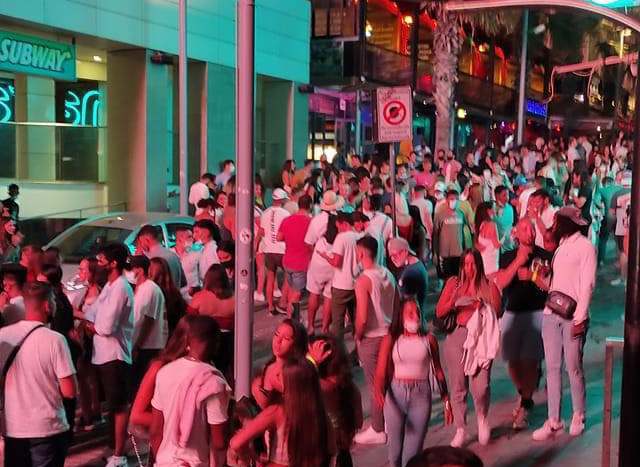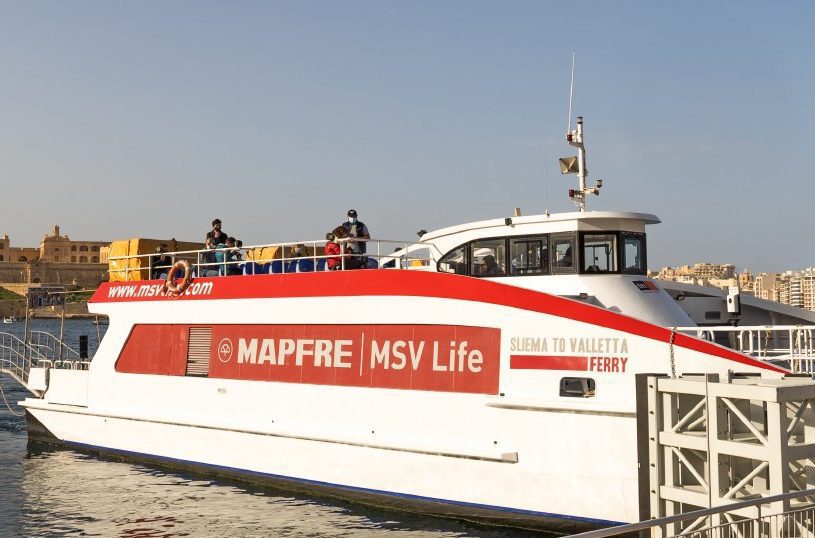Paceville’s Town Centre Management (TCM), an initiative within the Tourism Zones Foundation, is seeking to limit the ‘collateral damage’ of Paceville’s nightlife activities on its daytime economy with a commitment to finish cleaning the area and conducting other essential services by 8am.
In what may come as a surprise to many, although the area is best known as an entertainment hub that attracts tens of thousands of revelers every night, its night-time economy only makes up around 17-20 per cent of the area’s economic contribution.
This was explained by Philip Fenech during a workshop hosted by advisory company EMCS as a follow-up to the tourism carrying capacity exercise conducted by audit firm Deloitte.

Mr Fenech serves as deputy president and head of tourism affairs at the Chamber of SMEs, as well as chairing TCM Paceville/St Julian’s.
In his intervention, Mr Philip dismissed notions that Paceville is “finished”, saying such comments typically come from those who are no longer attracted by the entertainment mix currently on offer in the district: “What these remarks really mean is that it is not the same product they previously liked in their younger days. In reality, establishments in operation today have higher standards, and this is reflected in the number of people having a great time in the area.”
“People say a lot of things about Paceville, but the truth is, Paceville is a success story. There has never been such a variety of economic activity, and it has never before generated so much value added, and is still growing at a fast pace.”
The majority of Paceville’s economic contribution, in fact, comes from the many accommodation and retail outlets, language schools, offices, and the many tourism services like water sports and health and wellbeing establishments, he told attendees.
Recognising the importance of both the entertainment segment in itself and its role within the area, he continued, requires careful management to ensure that any “collateral damage” it may have is reduced to the minimum possible.
This includes, for example, the large amounts of rubbish generated every night, which typically lines the streets until being gathered in mounds, before being picked up by the collection service.
“What we hope to achieve is that all this cleaning – and this is a momentous job that needs to work like clockwork – is finished before 8am, so that people can exit their hotels, or arrive to work, in a pleasant, clean area,” Mr Fenech said, effectively “locking away” the impacts of nightlife to specific hours.
However, cleanliness is not the only issue plaguing Paceville. Crime and security issues, a perennial concern, were brought into sharp relief in recent months with videos emerging of shocking public brawls, although the police warned against “moral panic”, with violence in the area actually declining.
“Small fights do break out and, when they do, there’s no time to be afraid. Sometimes, police officers are hurt. But it’s entirely expected in a location teeming with nightlife,” said one police inspector.
Mr Fenech meanwhile stated that police presence is sometimes hampered by a lack of manpower, especially during the peak summer season which also sees a multitude of other events and feasts around the country, which also need to have police.
“Often, we will only get the full amount of police that are detailed, which only increase later on, in the early hours. Ideally, in an area with so much activity, it is of utmost importance that consistency in police presence is adhered to at all times,” although he praised the police for their “incessant” efforts to root out any illicit activities on Paceville’s streets.
Featured Image:
Malta Entertainment Industry and Artists Association
Property more affordable today than it was in the ’80s,’ says leading architecture firm
The valuation practice of DHI Periti based its argument on data going back 40 years
Valletta Ferry Services suspends Sliema service due to weather conditions
This comes as a result of strong winds and a swell in the harbour
Government appeals court decision to grant €111m to National Bank shareholders
Government justified its intervention in the National Bank by stating that it averted economic catastrophe






